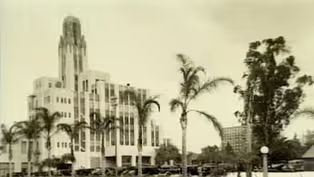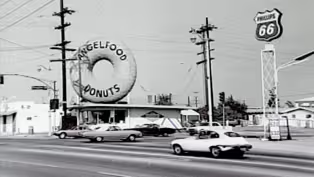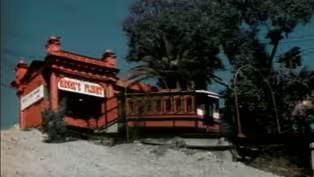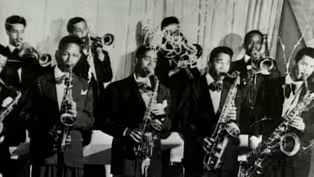
Helms: The First Bread on the Moon
Clip: Episode 2 | 4m 25sVideo has Closed Captions
Helms Bakery operated from 1931 to 1969, at the site of Culver City's "Bakery District."
Helms Bakery operated from 1931 to 1969, at the site of what is now Culver City's "Bakery District," as well as another bakery in Montebello. Paul Helms' business took off when he became the official baker of the 1932 Summer Olympics, and Helms delivery coaches expanded from a fleet of 11 trucks to over 500.
Problems playing video? | Closed Captioning Feedback
Problems playing video? | Closed Captioning Feedback
Things That Aren't Here Anymore is a local public television program presented by PBS SoCal

Helms: The First Bread on the Moon
Clip: Episode 2 | 4m 25sVideo has Closed Captions
Helms Bakery operated from 1931 to 1969, at the site of what is now Culver City's "Bakery District," as well as another bakery in Montebello. Paul Helms' business took off when he became the official baker of the 1932 Summer Olympics, and Helms delivery coaches expanded from a fleet of 11 trucks to over 500.
Problems playing video? | Closed Captioning Feedback
How to Watch Things That Aren't Here Anymore
Things That Aren't Here Anymore is available to stream on pbs.org and the free PBS App, available on iPhone, Apple TV, Android TV, Android smartphones, Amazon Fire TV, Amazon Fire Tablet, Roku, Samsung Smart TV, and Vizio.
Providing Support for PBS.org
Learn Moreabout PBS online sponsorshipIt may come as a shock in this age of supermarkets and super malls, but the groceries used to come to us.
The milkman and the iceman and the vegetable man and the meat man all came to the door, and the grocery man delivered the rest.
The Good Humor man may still be around, but just about the last to go was everybody's favorite, the guy who blew the whistle, the Helmsman.
Mae: This was a whistle that comes off of the Helms Bakery.
Would you like me to blow it?
[Toot toot toot] Can you hear it?
[Music playing] Ralph: Paul Helms started Helms Bakeries in 1930, and he got a contract to supply the Olympic training tables then took on the Olympic job of baking for all of Los Angeles.
Pretty soon, 300 trucks fanned out over the city every day.
Thousands of kids chased after the Helmsman for their share of sugared donuts.
And Karen Bunde was one of them, and she's still a fan today.
[Music playing] [Whistle toots] Karen: The Helms coach would come about the same time every day with all the fresh baked goods you could possibly want, whether it was jelly donuts or cream puffs or chocolate-chip cookies or Olympic bread or wheat bread or donuts of any shape and variety.
Mae: And you would just put up a card in your window, a Helms card, that would state that you wanted bread or pastry or for him to stop.
And he would blow his whistle, and, um... then you would go out and purchase whatever pastries or whatever you wanted.
Barbara: You got a lot of service in those days.
If you didn't have a car, it didn't make any difference because people brought things to you.
That was their business.
[Music playing] Karen: This particular coach, owned by Hillcrest Motors, is a 1948 Helms square coach.
[Music playing] Mr. Helms said, "Don't call them trucks, "because garbage comes in trucks."
So, they are Helms coaches.
And he started with 11 coaches, and at the height of the business, there were over 500 coaches on the road any given day, delivering to more than 3.5 million households.
Sammy: Most people don't realize, but I was the first non-white ever to win a national championship in diving and the first American-born Asian to win a gold medal for my country, the United States.
But while we were there in London, Helms Bakery used to fly in the Helms bread every day for our consumption.
And I remember all the Europeans, the Asians said, "That bread "that is like cake, "it is so white.
"How can they make bread so white?"
So, we ate like kings.
The French brought in their own wine.
But we brought in Helms Bakery.
Ralph: In 1969, a loaf of Helms bread sailed up in the Apollo 11 space capsule to become the first bread on the moon.
But a sad postscript-- five months later, they turned off the ovens because those Earthbound little delivery coaches were just too expensive.
[Music playing] Karen: It was a wonderful time, and Helms Bakeries, I think elicits a very warm, personal feeling about the essence of Los Angeles at that time.
[Music plays]
Video has Closed Captions
Clip: Ep2 | 5m 6s | Bullocks Wilshire was a high-end department store at 3050 Wilshire Blvd from 1929 to 1993. (5m 6s)
Drive-ins, Car Hops and Weird Architecture
Video has Closed Captions
Clip: Ep2 | 2m 27s | Los Angeles has long been tied to the automobile. (2m 27s)
Video has Closed Captions
Clip: Ep2 | 3m 52s | The original ran just north of today's for over 60 years. (3m 52s)
When Central Avenue Was L.A.'s Jazz Capital
Video has Closed Captions
Clip: Ep2 | 3m 57s | Central Ave. was L.A.'s center of jazz music and African American cultural life. (3m 57s)
Providing Support for PBS.org
Learn Moreabout PBS online sponsorshipSupport for PBS provided by:
Things That Aren't Here Anymore is a local public television program presented by PBS SoCal



















